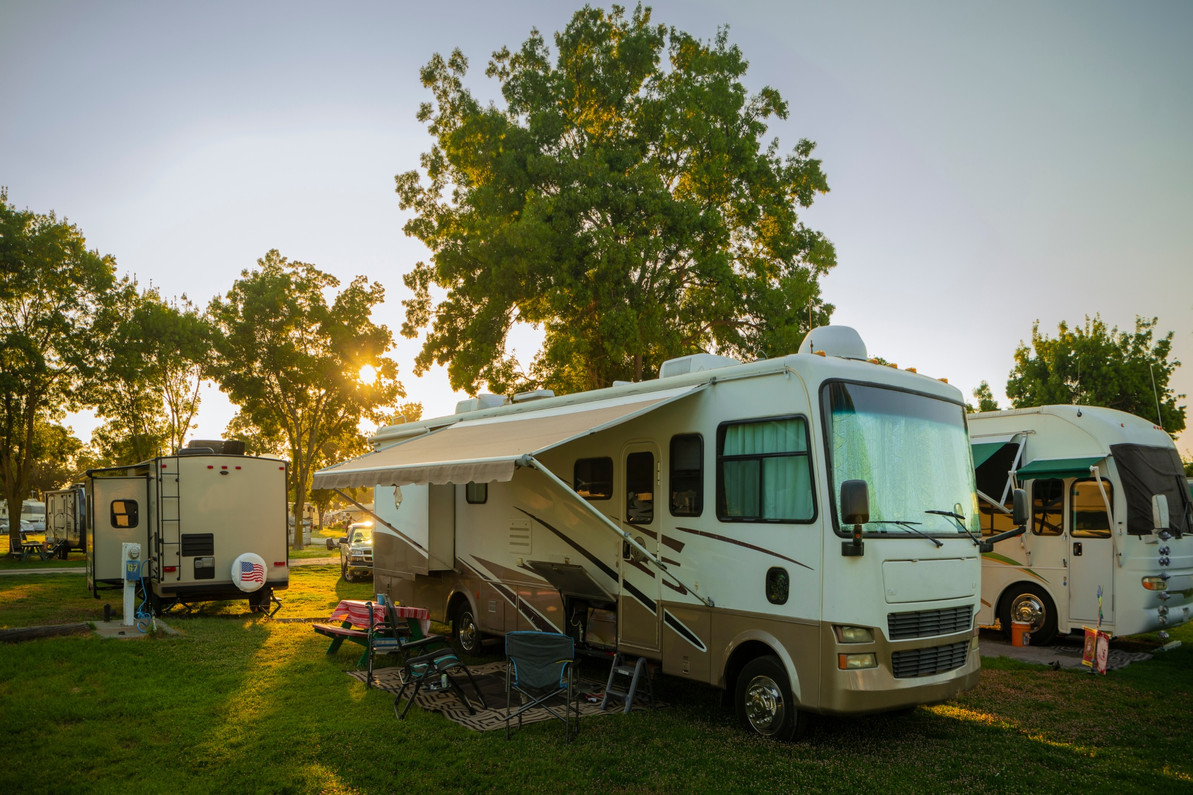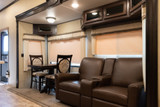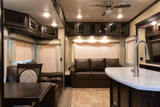Staying Safe in Your RV
Personal safety should always be a top concern when traveling, especially when we venture into new, unfamiliar territories. Even with RVs, which are basically a home on wheels, traveling comes with inherent risks. Some things are out of our control, but there are some things you can do to prepare yourself in case things take a turn for the worse.
Read on for some quick tips to stay safe while traveling in your RV.
Plan In Advance 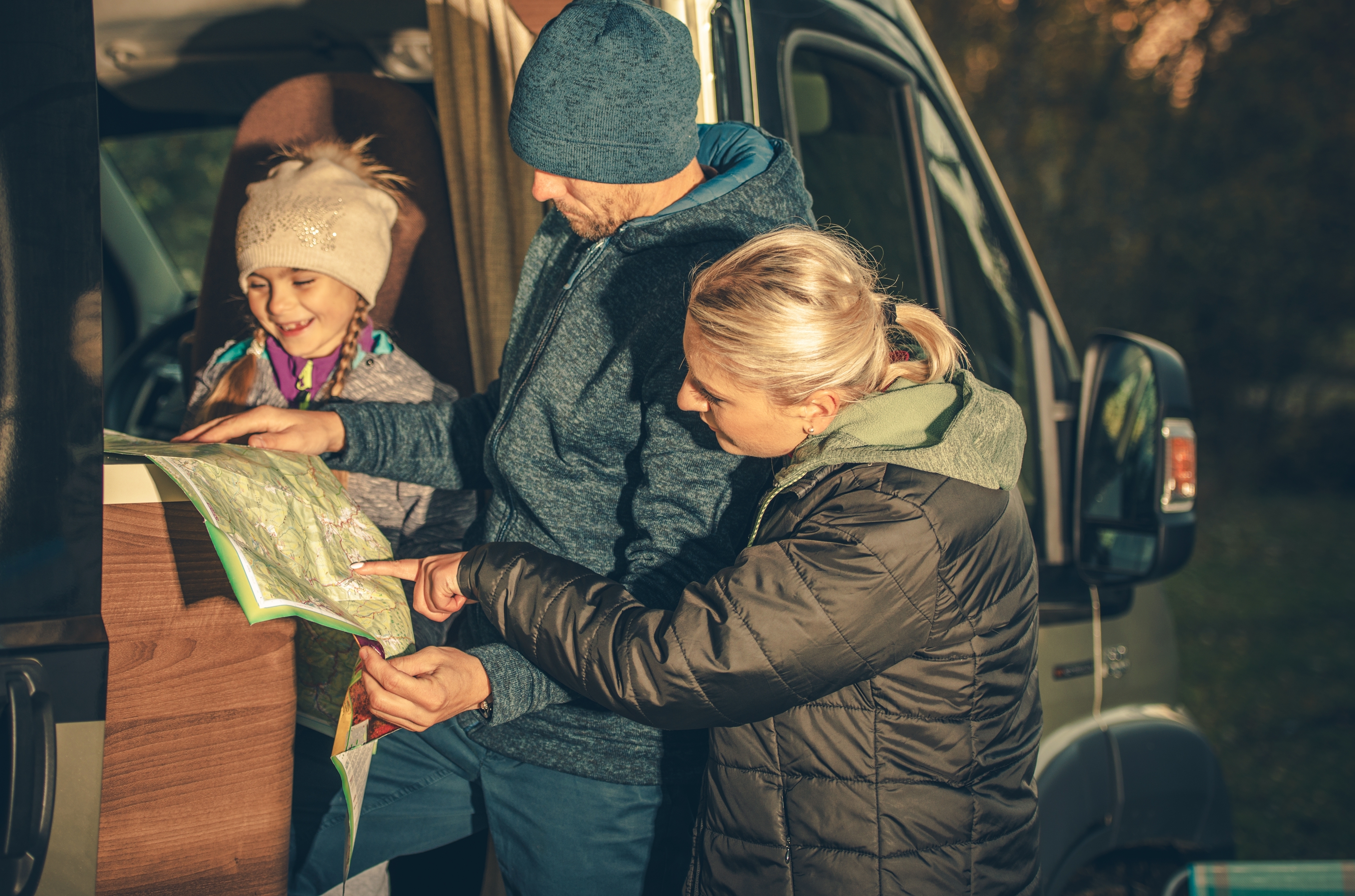
If possible, plan stops ahead of time when traveling in your RV. This goes for everything en route, from gas station runs and overnight dry-camping to extended stays at campgrounds and sight-seeing excursions. Depending on the size of your rig, you could run into issues with road weight limits, narrow roads, and tiny gas stations. Trucking or RV-specific navigation apps can be extremely helpful for planning long trips. Not every little detail of your trip will be planned, and that’s part of the fun! However, having some options in place will reduce stress while traveling and improve your overall experience.
Be Flexible
Sometimes travel plans need to change on the fly. Inclement weather may appear unexpectedly, traffic or road closures can impact the best available route, or your RV could experience mechanical troubles - whatever the reason, you must be able to remain calm and be flexible in your plans.
Complete a Thorough Mechanical and Systems Check Before Traveling
You don’t need to be an RV maintenance technician to complete a pre-trip vehicle check, though taking your rig in for a basic inspection every six months is good practice. During a pre-trip vehicle check, you inspect your rig to ensure that everything within your control is addressed before leaving. You may still break down on the road, as some things are inevitable with motor vehicles, but checking your RV before traveling can decrease the chances of this happening to you.
Watch the Weather
Keeping an eye on weather conditions is imperative to your safety while traveling and camping in an RV. On travel days, inclement weather can significantly affect your drive times and impact available routes. Knowing the weather a few days in advance can help you plan accordingly.

There will be times when bad weather is unavoidable, but according to the National Oceanic and Atmospheric Administration, 5-day forecasts accurately predict the weather about 90% of the time.
Heavy rain can quickly turn an RV campground into a giant mud pit. Trees and powerlines are sometimes no match for strong gusts of wind. These things happen and are out of your control, but you can always have a plan in the case of adverse weather. Whenever you arrive at a new campsite, survey the area and pay attention to things like water drainage pathways and objects hanging overhead. Are there potential obstacles that would make a quick exit difficult? Does the spot appear to be prone to flooding?
Always Lock Up Your Rig
Before you leave your campsite, always make sure your rig is locked. Even if you are only going to run a quick errand, locking up your rig is a good habit to have. You may even want to consider upgrading your RV door locks before your next trip. There are a few good reasons to upgrade your door locks, the most obvious being a broken or loose latch, but did you know that only a handful of lock/key assemblies come standard for RV doors. This means that other people have keys that will unlock your RV. If this makes you feel uneasy, keyless entry options may be a good alternative for your peace of mind.
Know Your Emergency Exits

You shouldn’t be waiting for an actual emergency to learn how your rig’s emergency exits function. In times of high stress, our emotional response jumps into overdrive, and our critical thinking skills take a huge hit. It may seem obvious how your emergency exits work, but you can’t be sure unless you try them. And when I say try your emergency exits, I mean to actually get out of the RV via the emergency exit. If you’ve done it before, you’ll know exactly what to do in an emergency. You’ll also be able to determine if you need any additional assistance, such as a step stool or rope ladder.
Travel with a Bug Out Bag
A Bug Out Bag is an emergency-preparedness bag that contains essential items for 72 hours of survival. Typically, an emergency bag will contain at least the following: water, shelf-stable food, first aid supplies, lighter or waterproof matches, a multitool and paracord, some kind of light source, weather-appropriate clothing, and a self-defense tool. Beyond that, Bug Out Bags are personalized depending on where you’ll be traveling to, what season it is, and of course, personal preference.
Bring Your Trusty Canine Companions Along
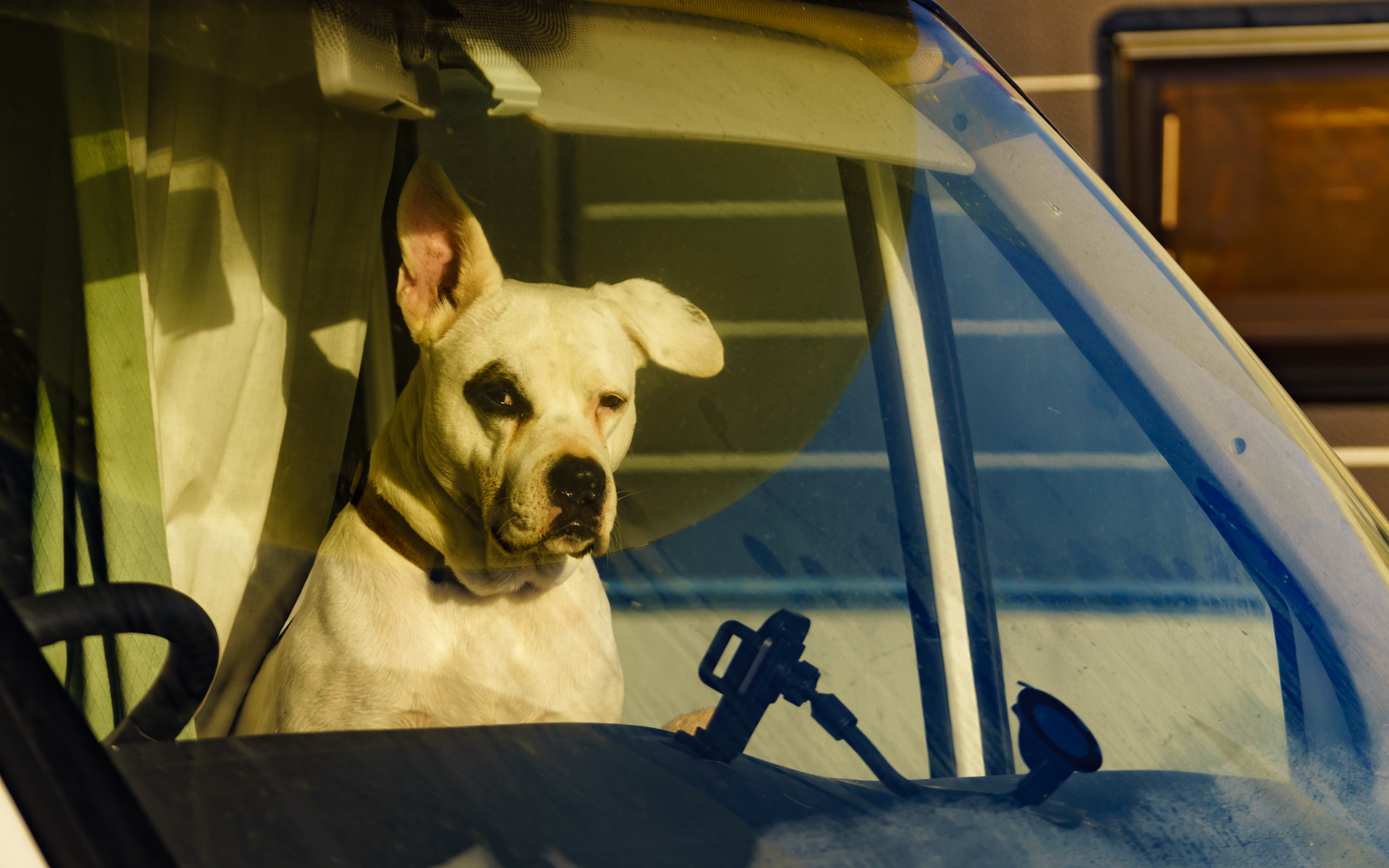
Not everyone is a dog person, but it sure seems like a lot of RVers are! According to a survey by GoRVing, 92% of RVers who travel with pets are dog owners. I personally love cats and dogs the same, but when living in an RV, dogs seem to provide travelers with an increased sense of safety and security. Dogs are very aware of their surroundings and will usually alert you of any commotion around your rig by barking. Granted, most of the things they respond to are by no means threats to your safety, like a squirrel, for example. Even so, a barking dog will likely deter intruders.
If you missed our article on traveling with pets in your RV, check it out here for some helpful tips to keep your pets happy and healthy on the road!
Understand Insurance Policies and Coverage
This is another instance where you shouldn’t wait until an emergency to understand the ins and outs of your RV insurance policy or health insurance coverage.
Is roadside assistance part of your RV coverage? What about accidents involving an uninsured motorist? In case of a medical emergency, do you have health coverage outside of your home state?
Not knowing the answers to these questions could end up being costly.
Have you ever been in a dicey situation while traveling in your RV? What did you do? How did you handle it? We’d love to hear about your experiences below!
Recent Posts
-
How to Keep Your Pets Safe While Camping
RVing and camping are a great getaway from the hustle and bustle of work and the city and the day-to …Jul 2nd 2024 -
Why Replace Your RV Furniture?
You may wonder when is the best time to replace your RV furniture. There is no one right answer to t …May 20th 2024 -
Can You Put Regular Furniture in an RV?
Many new and old RV owners ask themselves this question when they feel the need to update th …Apr 25th 2024 -
4 Tips for Securing RV Furniture While Traveling | RecPro
How To Secure RV Furniture There are few things that beat going out on an adventure with an RV …Apr 25th 2024 -
How To Keep RV Furniture From Peeling
Peeling RV Furniture | Why it Peels and How to Stop it Your RV furniture is a point of pride on yo …Apr 25th 2024 -
Turning up the Heat With an RV Fireplace
There’s an unlimited number of cool and exciting features you could add to your recreational vehicle …Apr 25th 2024

